Quick intro into Lead Segmentation via Target Lists in your SuiteCRM
Learn to segment leads in your SuiteCRM by creating target lists based on specific criteria, adding leads to target lists, and leveraging them to personalize marketing and sales strategies.
Effective communication is key to success in Customer Relationship Management (CRM). But as your business grows and diversifies, keeping up with personalized communication for all your leads can be challenging.
You might have noticed that you need to communicate differently depending on where your leads are, or what services or products they’re interested in. Recognizing this need for targeted communication, businesses turn to Lead Segmentation as a strategic solution.
Lead Segmentation – General Thoughts
Understanding Lead Segmentation: General Thoughts
So, what’s Lead Segmentation all about?
Lead segmentation empowers you to break down your expansive list of leads into manageable chunks based on shared interests, geographical locations, or other pertinent criteria. By doing so, you can tailor your messaging and engagement strategies to resonate more effectively with each distinct group.
In this blog, we’re going to talk all about lead segmentation, especially within SuiteCRM. I’ll explain why it’s important and how it can improve your communication and marketing efforts. Plus, I’ll give you practical tips and easy steps to get started. Whether you’re new to CRM or a pro, this guide will give you the knowledge and tools necessary to drive meaningful engagement and foster lasting customer relationships.
If your SuiteCRM is running smoothly with all the processes and data in place, let’s address potential communication gaps with your leads. But before we jump into it, make sure your leads and data are clean and organized. If you need to do some data cleanup, feel free to watch my video on Updating/Editing Data in SuiteCRM for some helpful tips.
Target Lists
Target Lists: Streamlining Lead Segmentation
Alright, let’s give this a shot. We’ve got leads, and there’s a specific feature within SuiteCRM that’s dedicated to segmentation: Target Lists. These lists allow you to group leads efficiently, whether by geographical area, specific criteria, or other factors.
First off, find the Targets – Lists module within SuiteCRM. You can open it up in a new tab.

Once you’re in, you’ll see how these lists can streamline your campaigns and communications.
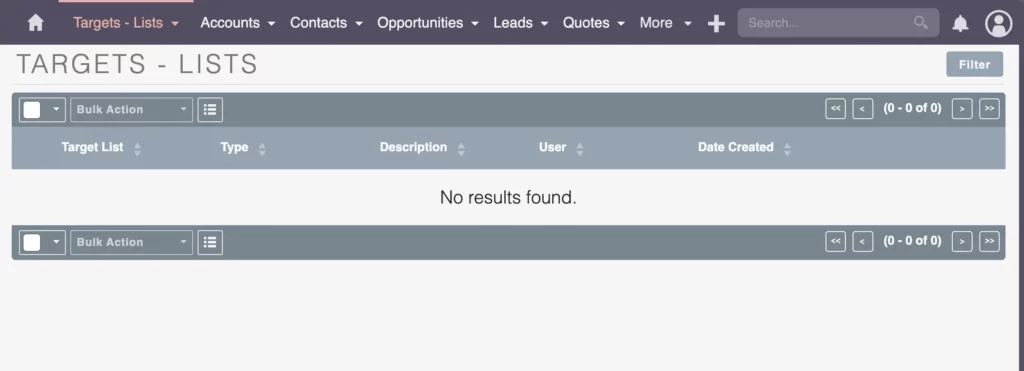
Types of Target Lists
There are a few types of lists to choose from, each serving a different purpose:
- Default List – This is your primary choice and is commonly used, suitable for most situations.
- Seed List – Test users can be added to this list to ensure they don’t impact campaign statistics, such as when running email campaigns.
- Suppression List – Use these to exclude specific domains, emails, or IDs from your campaigns.
- Test List – Perfect for running tests without affecting campaign statistics.
Let’s put this into action. Say we want to segment leads based on geographical areas, like California. Select “Default” as the list type.
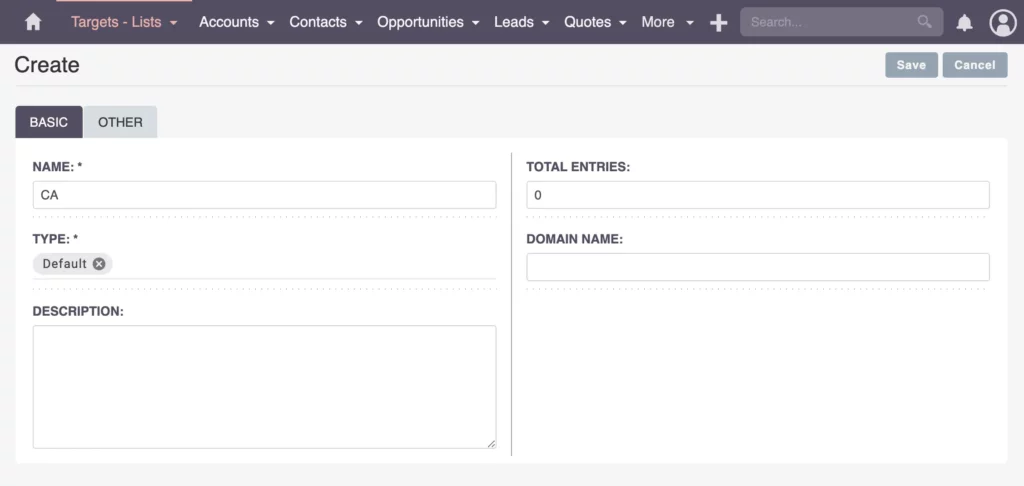
Now, let’s save our settings. Within this module, you’ll find related options like contacts, leads, and targets. For instance, if you’re sending out a newsletter, you might only want to target existing contacts and customers who have made purchases. On the other hand, if you’re dealing with incoming leads, effective filtering is key to making sense of your segmentation strategy.
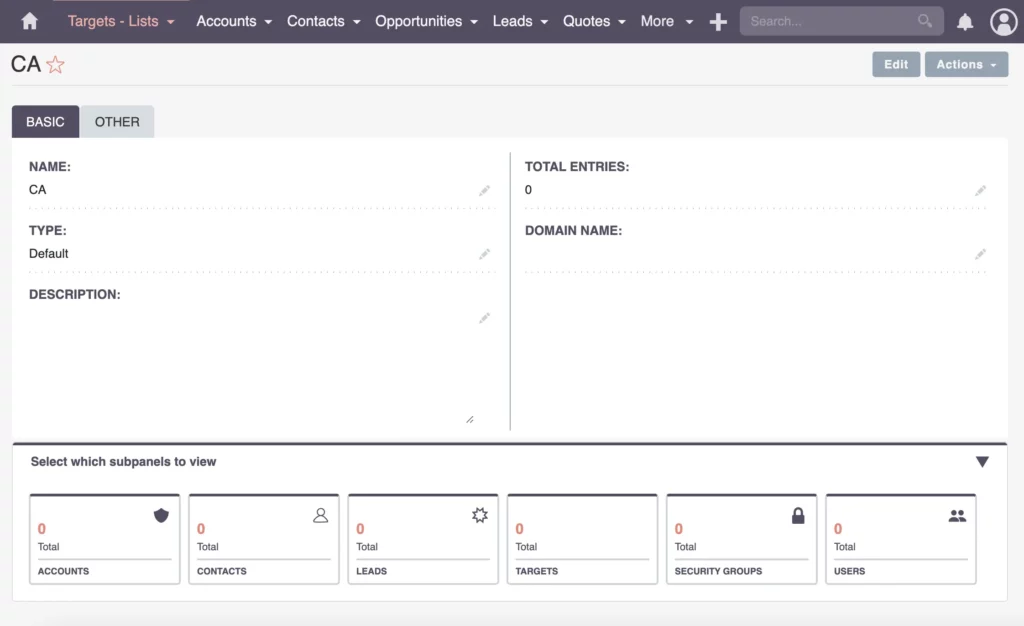
Filtering
Target Lists: Filtering
Now, let’s dive into managing incoming leads effectively. To begin filtering, simply click on “link” to access the list view.
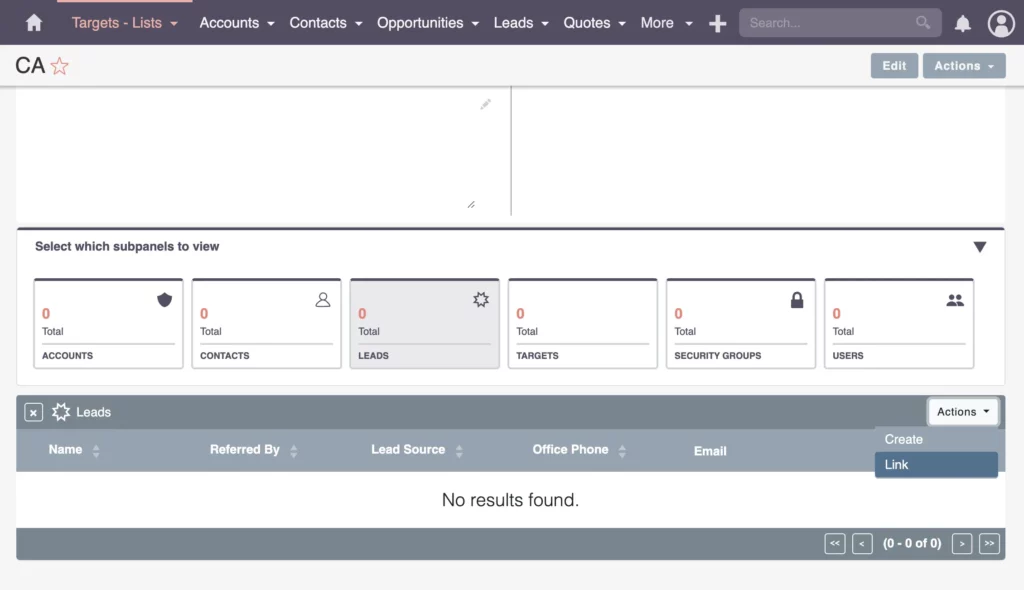
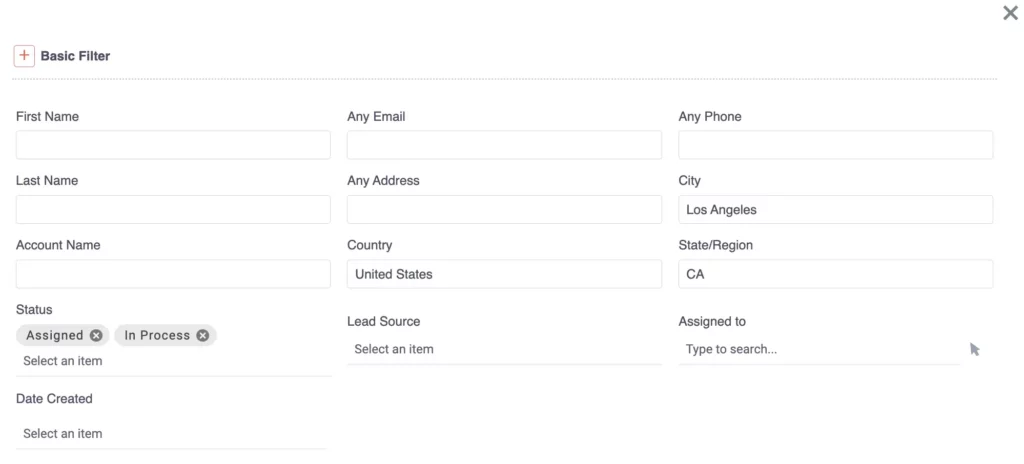
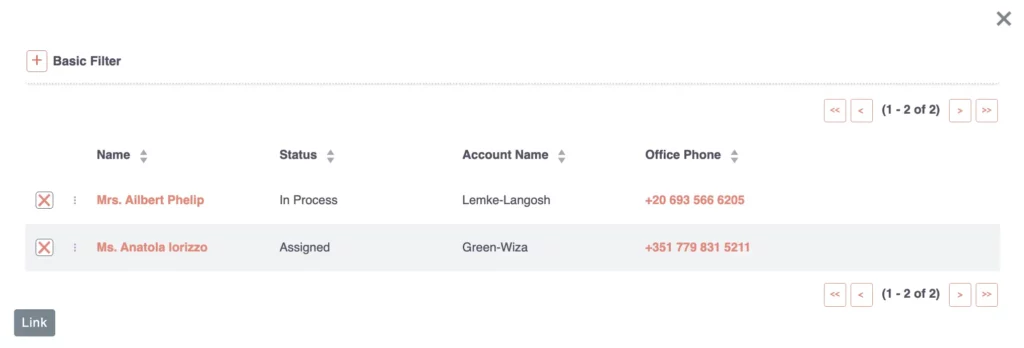
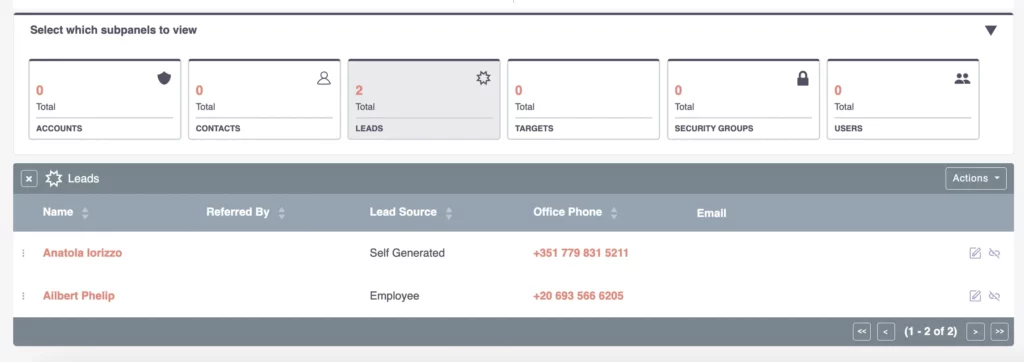
If you’re new to list view or need guidance on using search and filters, check out my video tutorial, SuiteCRM Tutorial: Use Search and Filters to make your job easier.
How to Segment Leads Strategically
As we move ahead, it’s essential to consider how you want to segment your leads strategically. Think about the touchpoints for your leads, the type of content and workflows each group should encounter within your CRM system. Aim for specificity without overwhelming yourself with too many different lists.

How do you envision communicating with your customers? How do you plan to engage with them and manage their interactions within your CRM system? It’s best to streamline this process, making it feel personalized for each lead while keeping it manageable for you.
Bastian Hammer
Naming Conventions for Target Lists
As you build your target lists, and eventually find yourself with several of them, stick to clear naming conventions, especially if categorizing by service or product.
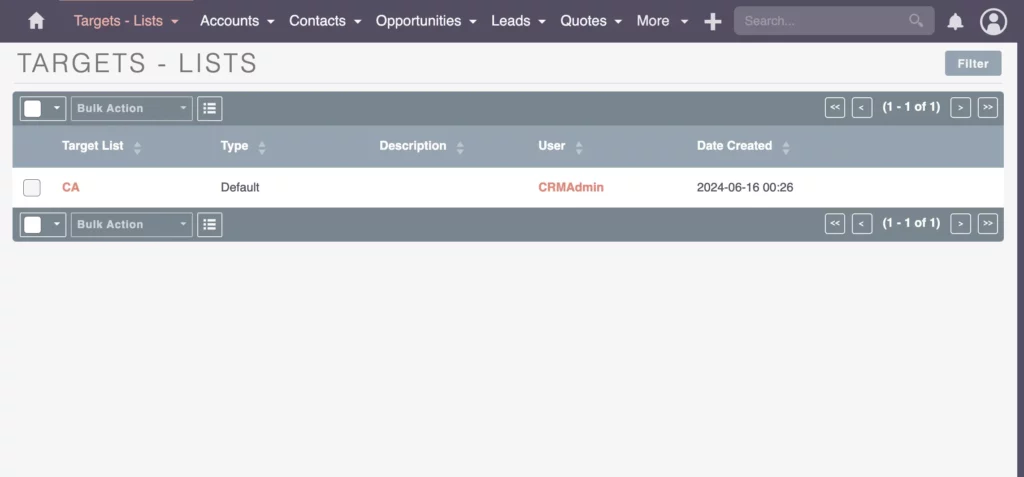
Your target lists should have names that clearly describe their purpose, making it easy for everyone to understand. Start with this approach to ensure clarity and organization within your CRM system.
Furthermore, within these service or product categories, there may be further sub-classifications. Be sure to provide descriptive names for these subcategories. This practice simplifies navigation and comprehension of the contents of each list.
Familiarize Yourself with Target List Types
In addition to creating target lists, it’s crucial to understand the different types available. These include default, seed, test, and others, each serving specific purposes such as testing or pre-filling data. Knowing these types will help optimize your segmentation efforts within SuiteCRM.
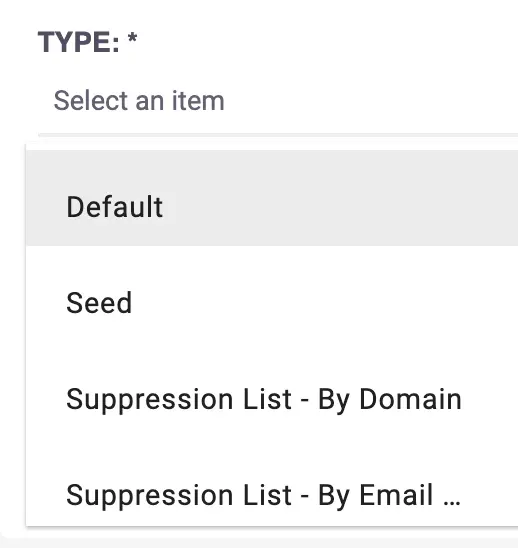
For further guidance on managing target lists, explore this Target Lists Documentation available. It’s pretty straightforward and similar to handling any other module within SuiteCRM. Once you grasp the basics, navigating and utilizing target lists becomes a breeze.
Recap
Recap on Lead Segmentation
Let’s summarize what we’ve learned today. We’ve explored the importance of segmenting leads and contacts within the SuiteCRM system, understanding how it enhances communication and streamlines marketing efforts. By building targeted lists, we empower ourselves to engage with leads more effectively and nurture lasting relationships.
Now, it’s your turn to take action. Use the insights from this guide to enhance your CRM strategy. Begin segmenting your leads and contacts to unlock the full potential of your customer relationships. If you have any questions or need further assistance, don’t hesitate to reach out.
Thank you for investing your time in reading this article. Keep exploring, keep innovating, and keep striving for excellence in your CRM journey. I look forward to supporting you along the way!